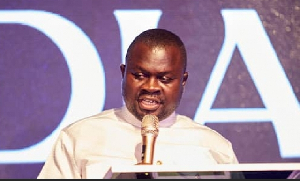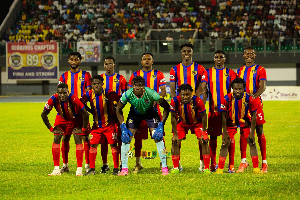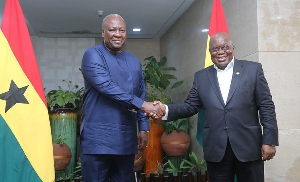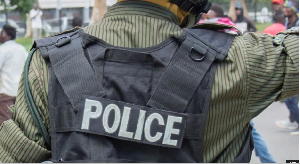President of the Ghana Journalists Association (GJA), Albert Kwabena Dwumfour, has voiced significant concerns regarding the Ghana Police Service's plans for the upcoming elections.
He raised his concerns at a conference of some media stakeholders, including the Ghana Independent Broadcasters Association (GIBA), the Private Newspapers and Online News Publishers Association of Ghana (PRINPAG), and the New Media Association (NMA).
The conference, held on Thursday, November 28, 2024, in Accra, addressed several key issues, including media accreditation for election 2024, the police initiative to station liaison officers at media houses, and the arrest of a Wontumi FM journalist by the police.
Speaking during the event, Dwumfour stated that despite being a major stakeholder, the media coalition was not invited to a crucial meeting between the police administration and selected editors.
Dwumfour indicated that this exclusion might have been deliberate, aimed at avoiding the coalition's vigilant oversight.
He said: "We have cause to believe that was deliberate rather than inadvertent as the police tried to avoid our eager eye and agility to protect and promote the interests of the media industry. Be that as it may, we are privy to the issues discussed at that meeting."
One of the main topics discussed was the police's promise to station media liaison officers at media houses for protection. While the initiative aims to ensure the safety of media practitioners, Dwumfour raised concerns about potential interference with journalistic work and the risk of information leaks.
He questioned which media houses would be assigned these officers and called for transparency to dispel any doubts.
“Is it a strategy to interfere with the work of the media? That’s our first question. Is it a ploy to leak information from media houses? That’s our second question. Which media houses have the police enlisted to detail its media liaison officers to? We can see some dark clouds surrounding this initiative by the police, and answers to these questions will clear the sky,” he added.
Additionally, the police's plan to centralise communication during the elections was scrutinised. Dwumfour acknowledged the importance of regular media briefings but warned that centralisation could hinder accurate and credible reporting, especially for issues arising outside the central communication's jurisdiction.
“As much as this is a laudable idea which has not been taken seriously by the police in the past, we commend the police for raising this. Again, we do not appreciate the centralisation of police communication due to key challenges it poses to media reporting.
“We believe that will compromise accuracy and credible reporting, especially when there are issues to be clarified outside the jurisdiction of a police central communication that may lead to misinformation and thus creating a trap to hound many journalists into police cells on the charge of publication of false news contrary to section 208 of the Criminal Offences Act,” he stated.
The GJA President concluded by calling on political actors to address these concerns and urging media practitioners to maintain high professionalism during the December 7th elections.
He emphasised the collective effort needed to ensure a successful and peaceful electoral process.
“We call on all the political actors we have mentioned in this press conference to address the issues we have raised for the good of the country. We also urge media practitioners to exhibit a high sense of professionalism,” he stated.
Watch the video below:
ID/BB
Click to view details



General News of Thursday, 28 November 2024
Source: www.ghanaweb.com

















